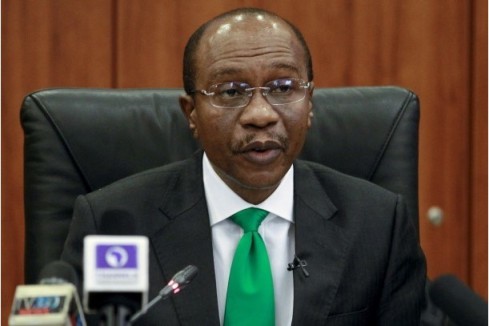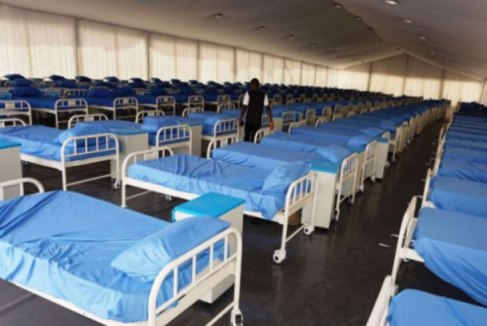
Jide Akintunde, Managing Editor/CEO, Financial Nigeria International Limited
Follow Jide Akintunde
![]() @JSAkintunde
@JSAkintunde
Subjects of Interest
- Financial Market
- Fiscal Policy
CBN's CACOVID distractions 14 Dec 2020
Late last month, the governor of the Central Bank of Nigeria (CBN), Godwin Emefiele, announced that the titular private sector group, Coalition Against COVID-19 (CACOVID), would be spending N150 billion over the next five years to support the efforts of the federal government to create employment opportunities for the youth. Mr. Emefiele also disclosed that CACOVID has pledged additional N100 billion spending to buy rifles and security gadgets for the police. The coalition would also help to rebuild police stations destroyed by hoodlums who hijacked the EndSARS protests in October.
The CBN betrays a remarkable lack of awareness of the risk involved in having a group largely comprised of banks to help arm the Nigerian police. The EndSARS protests were against police brutality, including unlawful shooting of Nigerians, and ended with the shooting of protesters at the Lekki toll gate by both the military and the police. If in the future the firearms procured by CACOVID were to be unlawfully used by the police against the citizens, it should be expected that the backlash would extend to the banks.
Central Bank of Nigeria Governor Godwin Emefiele
CACOVID was formed to support direct efforts to control the COVID-19 pandemic in Nigeria. With its new spending commitments, however, the coalition is set to remain on the scene well after the coronavirus disease would have been contained. It plans to pivot to ill-thought-out interventions that even constitute an affront to the public. The President Muhammadu Buhari's administration has remained remorseless after the shooting of civilians protesting police brutality, while the misuse of firearms by the police has continued.
Due to the dismal national testing capacity till date, no one can tell how effective the intervention of CACOVID against COVID-19 has been. But if the group is to remain in existence beyond now that it appears the coronavirus is much less of a threat in the country, it should be that it is supporting the financial and logistical strategies for making the COVID-19 vaccines available in Nigeria. This should have been the logical continuation of the intervention by CACOVID, instead of veering off to new areas altogether.
This lack of focus is not the way the private sector works to earn its reputation of efficiency. CACOVID may, therefore, be a private sector-led initiative in its public communication but, in reality, a group tied to the apron strings of an incompetent, overbearing government using the CBN as a proxy. This is likely to be the case, given the new kinds of spending the coalition has committed to. Having the CBN Governor as a Co-Chair, further suggests the so-called private sector group lacks the independence to decide its interventions.
CACOVID is a major distraction for all concerned: the CBN, participating financial and nonfinancial institutions, and the public. For the public, CACOVID is deflecting the primary responsibility of the government in protecting lives and property, which amongst other frameworks include maintaining a competent police system. In the face of the weakening capacity of the state to maintain law and order, CACOVID presumes to be able to step in and fill the gap. But this would be nothing more than an effort to shield the government from public accountability for its egregious failure.
This is not to say the private sector cannot reasonably support the government in the area of strengthening policing. In Lagos State, the private sector has been supporting the police with operational vehicles and communication equipment under the security trust fund set up by the state government. However, such interventions cannot help much without implementing structural reform of policing in Nigeria and dramatically increased funding for improved welfare package and training of the service officers, thereby attracting people with the right capacities into the police.
As for the CBN, its role in CACOVID highlights its unorthodoxy of many years running. The role of central banks in fighting the economic impacts of the COVID-19 pandemic is well known. They comprise the use of conventional and unconventional monetary policy tools to backstop the banking system and support the resilience of the economy. Without such tools, it is believed that the public health crisis and associated economic stress could mutate to a major financial crisis.
In fairness to the CBN, its main monetary interventions against the pandemic were consistent with those of the world's major central banks. The CBN also acted speedily. Immediately after the federal government announced lockdown at the end of March, the CBN quickly introduced various policy measures. In short order, it reduced the interest rate charged by development finance institutions (DFIs) managing its intervention funds from 9 per cent to 5 per cent. The reserve bank also announced a N1 trillion fund for manufacturing and production companies, N100 billion fund for lending to the healthcare sector, and N50 billion credit facility for households and micro, small and medium scale enterprises (MSMEs). At its May Monetary Policy Committee meeting, the CBN cut the benchmark interest rate by 100 basis points (bps), from N13.5 per cent to N12.5 per cent, and further slashed it by 100 bps in September to N11.5 per cent.
But with the Nigerian economy now in its worst recession in 36 years, the CBN should be planning further monetary stimulus to support businesses and the economy. Banks themselves need support, as the economic slump has started to affect their profitability, comparing their Q2 and Q3 results with a year earlier.
The CBN ought not to concern itself with whether the police have bullets or not. But for years now, the apex bank has expanded its focus to areas outside its mandate; it has been growing its balance sheet in areas where it should have restricted itself. While at it, the economic growth, inflation and exchange rates have missed their policy targets. So, while the CBN is failing in its primary responsibilities, it is championing the performance of the primary responsibility of the government.
There are many concerns for the banks in co-travelling with the CBN on the CACOVID charade. One area of concern is that good corporate governance may be eroded in the banks by the misaligned CACOVID interventions. With many banks co-opted into the coalition, the role of their boards in determining the social investments of the institutions is diminished. Some may argue that the banks have always depended on government patronage; therefore, they are only repaying the favours. Such mutual dependency of the government and the market affects the efficiency of the latter.
Two, at a time of dwindling profitability, the banks are having to necessarily involve in interventions that would reduce dividend pay-outs to shareholders. This could be inimical for the welfare of small investors and retirees who depend on yields on their equity investments to survive.
Three, and perhaps most concerning, is that with CACOVID, social risk is individualised but returns on social investments are shared by the group. The view that CACOVID would generate public approval generally for the banking industry underestimates the significant social pressure that some banks are facing. During the riots and looting spree that followed the EndSARS protests, some banks were specifically targeted for vandalization and threatened on social media. Afterwards, the CBN ordered the accounts of some champions of the protests to be frozen. The banks that carried out the draconian order – against their wish but in compliance with a regulatory directive – have also attracted further negative public sentiment.
Should such banks wish to clean up their image and reconnect with the communities where they operate by committing to some social investments, they should be allowed to do so in their names. If their wrongdoings are identifiable by the public, their social good should also be personalised to them. To deny them such identification is to prevent the amelioration of the social risk the banks face.
So far, the big institutions have gained more visibility in CACOVID. Even if they are donating more because of the relative bigger sizes of their balance sheets and profits, the smaller institutions should still be able to harness the publicity mileage from their relatively smaller financial contributions to the coalition. The more important point, however, is that Nigerian banks are already embedding environmental, social and governance (ESG) principles in their investments and operations. They are also committed to corporate social responsibility (CSR). It is required they do these at the pace that is conducive for sustainable interventions.
Hospital beds donated by CACOVID to the Kano State Government to support its
Covid-19 response
The intension of forming CACOVID may not be divorced from building higher capacity for intervention and making more impacts by building the partnership. Ordinarily, this is plausible. But building partnership should not deny the institutions their prerogative to independently determine their interventions. A good programme, proven by its result, can be scaled up through partnership. This may even be more efficient than making big intervention in unproven programmes.
Finally, institutions are rooted in communities. It is, therefore, important that they make more social investments in their communities rather than supporting the social agenda of the national government. But businesses, especially banks, can invest in the national development priorities of the government. They should actually do so as of a necessity, provided the government's plans are well developed.
The foregoing does not reduce the importance of CACOVID as originally conceived as a public health intervention against the COVID-19 pandemic. But we don't know how effective its interventions have been. During the looting that followed the EndSARS protests, many warehouses were discovered where food and other supplies provided by CACOVID were languishing for reasons including the lack of capacity of the local governments to distribute the goods to the people they were meant for. The country may have been spared the worst projections of the pandemic, due to its tropical climate, young population and experience with the Ebola virus.
CACOVID needs to evaluate the effectiveness of its COVID-19 response. Lessons learnt would be useful for the future that many virologists and public health experts believe will feature more outbreaks of infectious diseases. There is no need to expand the interventions of CACOVID beyond its original focus and perpetuate its existence.
Jide Akintunde is the Managing Editor, Financial Nigeria magazine and Director, Nigeria Development and Finance Forum.



